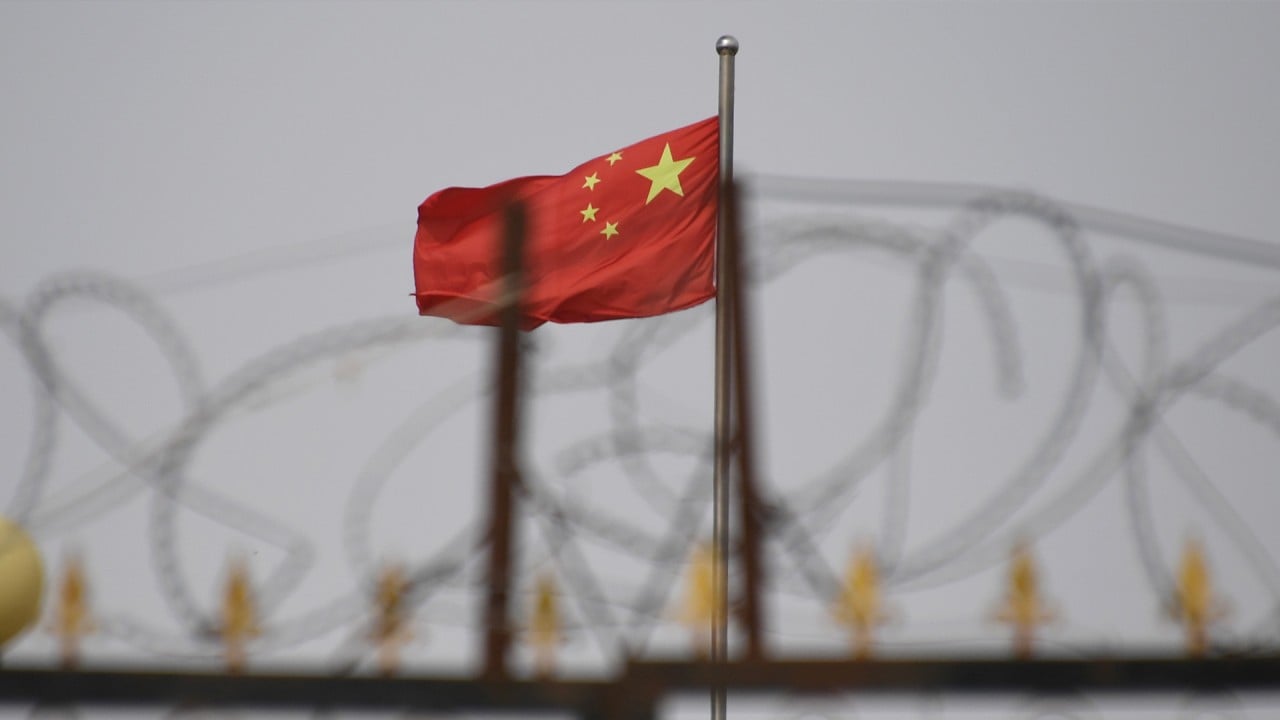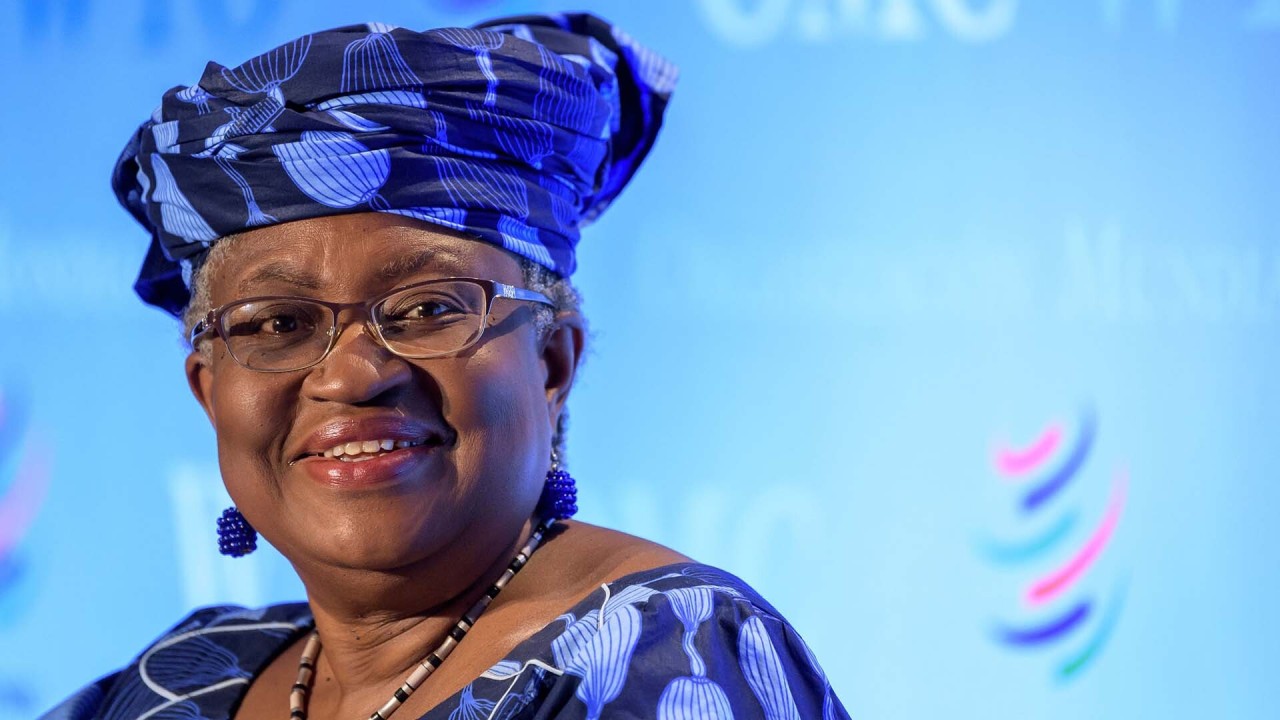
WTO chief warns EU, Japan, US not to ‘target’ China using trade reform
- When China feels targeted, rival powers will meet resistance on matters such as subsidies, Ngozi Okonjo-Iweala, World Trade Organization director general, says
- Headway is possible by addressing concerns from all sides about trade practices rather than using trade to solve non-trade problems, she tells EU event
The EU is next month set to publish a white paper on subsidies, while it, Japan and the US are building on a trilateral statement on the issue last year that was seen as a thinly veiled attack on Beijing’s industrial policies.
“We share concerns over distortions to world trade caused, for example, by the socioeconomic model of China, distortions to the level playing field, like industrial subsidies and transparency on industrial subsidies,” Valdis Dombrovskis, the EU trade commissioner, told attendees of the bloc’s Trade Policy Day on Monday.
“We have to show that China is not being targeted,” Okonjo-Iweala said at the event. “I’ll just be very open, that when China feels it’s being targeted and it’s only about China, then you get a lot of resistance.
“But if we were to present this in an appropriate fashion with facts on the table so that China can see the impact of its policies, [and] they can also see us try to do something about other types of subsidies, I think we’ll make some headway.
Dombrovskis said talks were continuing with the US and Japan on China issues and could lead to “extending [talks] into a broader set of like-minded countries”.
Okonjo-Iweala said she was “very happy” to hear that the EU and US were trying to solve China-related issues outside the WTO, since many political issues were “above our paygrade”.
“But there is a tendency sometimes to use the WTO or trade as kind of a weapon to solve these problems, which are not originally trade-related,” she said, adding that China “wants to see action on agricultural subsidies”, often used in the EU and US.
“Dealings with China have been very constructive,” Okonjo-Iweala said. “And I think that if we put the facts on the table, about the negative spillovers from such industrial subsidies, and share them with China … not only with respect to the developed countries but also with emerging markets and developing countries, they will be willing to look at that.”
What is the China-EU CAI and how is an investment deal different from a trade deal?
Okonjo-Iweala took the WTO’s top position in March after a three-month stand-off in which her appointment had been blocked by the outgoing Trump administration.
She had run for office on a ticket of reforming an organisation stagnating after years of gridlocked negotiations and that was rudderless following successive US governments’ blocking of new judges for its appeal court. A bystander to trade disputes between members, including China’s open fronts with the US and Australia, it risked slipping into irrelevance.
The EU’s trade policy event was designed to showcase its trade policy review, released in February. The document prioritised a new approach towards China’s “distinct state capitalist model”, saying it “poses increasing challenges for the established global economic governance system and affects a level playing field for European companies competing globally and at home”.
Politico reported on Sunday that the EU’s impending progress report on China would condemn its “authoritarian shift” under President Xi Jinping, while the European Parliament will on Wednesday debate China’s counter-sanctions and possible responses.
European officials suggested on Monday that with China soon to become the world’s largest economy, it must bear the responsibility that comes with that status.
“It must accept that it needs to play a much more constructive role in the global trading system; it needs to be able to take commitments which correspond to its weight in the system; it needs to understand that on issues relating to a level playing field – subsidies to state-owned enterprises – there is an urgent need to strengthen and modernise the rules,” Ignacio Garcia Bercero, a director in the EU’s trade department, said.
“The status quo is not going to be sustainable. I think that’s why we still really need to get a clear signal from China that [it is] ready to engage.”
In a report released on Monday, Fredrik Erixon, director of think tank the European Centre for International Political Economy, dismissed the EU’s new trade policy review for “its continued passivity on matters related to China”.
“Absent a realistic and medium-term strategy for dealing with challenges connected to the rise of China, Europe will have difficulties getting the EU-China Comprehensive Agreement on Investment approved,” Erixon wrote. “Europe needs an actionable agenda for addressing bilateral frictions with China and problems that occur outside bilateral trade.”



